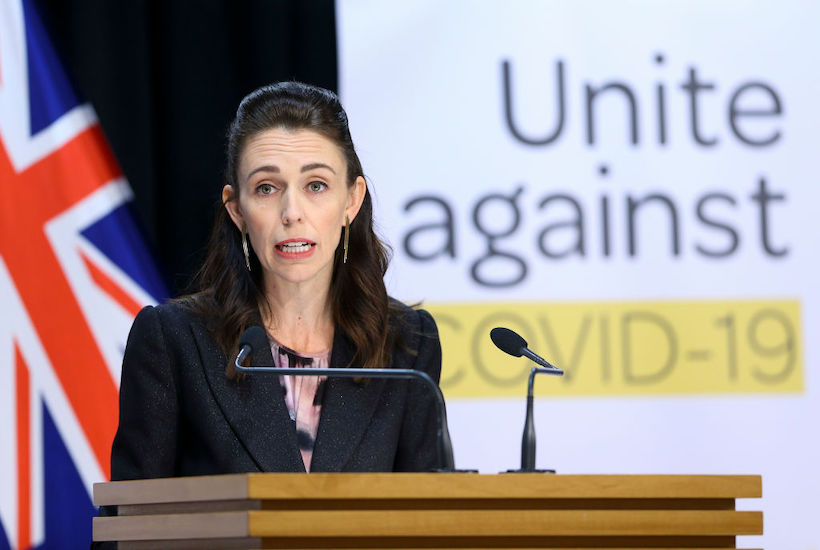New Zealand’s Ardern government has outdone even the world’s most authoritarian regimes, banning the sale of fiction.
Emails have issued from a range of booksellers, including UBS, which has a small chain of stores in Auckland, Canterbury, Christchurch and Dunedin, unpacking the latest state-sponsored instructions and intrusions into their industry:
Alert Level 4: We are very pleased to let you know that we have been given permission today, 17 April, to supply, through our online site, a wide range of children’s books for all ages (picture books, chapter books, activity books, reference, etc), to support everyone home-schooling or being home-schooled.
We can now also supply Maori & Pasifika books, learning & education, and books to support health and wellbeing.
These are all in addition to the essential textbooks & stationary, medical books, and books covering areas of professional education & learning support, that we have been allowed to supply for a couple of weeks.
Let’s unpack that a little.
Bricks-and-mortar bookshops across New Zealand have been closed because of the COVID-19 pandemic. Fair enough, I guess.
Many stores are either continuing to sell online, or have become online retailers, however — the mark of an adaptable and successful business, you might think.
But then, in steps the New Zealand government to tell them what types of books they are allowed to sell online, and, more importantly, what types they can’t.
“We have been given permission,” because there are all sorts of risks associated with selling prohibited books, aren’t there?
What does this mean practically for the good people of New Zealand, though?
Well, it means that Bill and his wife Bertha, who run a hypothetical small bookstore in, let’s say, Invercargill, and who are receiving online orders via an online platform such as Abe Books, now have to weigh those orders up against a set of government guidelines which tell them which books are acceptable for sale in a pandemic, and which are not.
Never mind that Bill and Bertha might only have received five orders that day, and have more than enough time to process each of them, at a small profit margin. Their government is now telling them they cannot do so.
Why? What possible public good can come of this directive?
Self-help books are currently legal in New Zealand, by my reading of the directive. I’ve never knowingly bought a self-help book in my life, but they service a particular market, and I’m pleased to see their authors continue to make the odd shekel in royalties. It will keep them in toilet paper, which is much more useful.
What I personally want to read during a lockdown — my version of self-help, and that of millions like me, I’m sure — are novels. Fictionalised stories that offer to engage, to uplift and to enlighten.
Unfortunately, though, novels are illegal to sell over the internet in New Zealand right now.
Yes, you read that right. Fiction — novels, and short stories — are currently banned unless, of course. they feature on an approved reading list.
So, it might be legal for Bill to send you a copy of J. D. Salinger’s 1951 classic Catcher in the Rye, which appears on a number of school and university lists, but he could be locked up for sending you Salinger’s Franny and Zooey from ten years later, which is presumably deemed to have no literary merit by the new government censors.
By the same token, you could legally sell Tolkien’s The Hobbit, under the guise of it being a children’s book, but not his Lost Tales. You could order Umberto Eco’s Theory of Semiotics with impunity, but if you ordered his much more entertaining Name of the Rose, Wellington’s censors would have you booked to rights.
Surely we have to stop and ask ourselves just how afraid our governments are or what we’re reading during this lockdown? Are the seditious thoughts hidden deep inside a Liam McIlvanney novel just too much for them to handle? Or do they fear that the first couple of chapters of the new Catherine Robertson release will be enough to drive people screaming onto the streets?
Or, are they just being overwhelmed by a wave of sad little bureaucrats, who need to justify their own “essential” roles in this crisis, by inventing ever more intricate, draconian rules and regulations that belong in the very fiction they have banned?
If I were an enterprising Kiwi academic, I might be tempted to set a course in the coming days, the reading list for which could comprise any work of fiction published in the twentieth or the twenty-first century. I might entitle the course “Readings for the Pandemic,” and offer free enrolment as a public service.
On the other hand, if I were an enterprising government official, I’d be looking for my matches and my jerry cans. There is only a hair’s breadth of difference, after all, between telling us which books it is permissible to read, and telling us which ones should be burnt in the town square.
Which way will the Jacinta junta jump? Sorry folks, this is a work of fiction, so we’re not allowed to share that information with you at this time.
Dr Craig Buchanan is a Perth-based academic who specialises in nineteenth-century fiction. He is also the National Secretary of the Liberal Democrats.
Got something to add? Join the discussion and comment below.
Got something to add? Join the discussion and comment below.
Get 10 issues for just $10
Subscribe to The Spectator Australia today for the next 10 magazine issues, plus full online access, for just $10.


























Comments
Don't miss out
Join the conversation with other Spectator Australia readers. Subscribe to leave a comment.
SUBSCRIBEAlready a subscriber? Log in